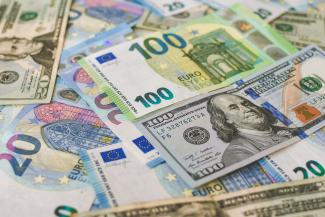
Ibrahim Boran courtesy of Unsplash.
U.S. Domestic Investments During Times of Global Uncertainty
Investing in U.S. domestic securities denominated in dollars during times of global uncertainty can be considered a prudent strategy for several reasons:
The U.S. dollar is often viewed as a safe-haven currency. During times of global instability, investors tend to seek safety in assets that are perceived as stable and reliable. The U.S. dollar, backed by the world's largest economy and a stable political system, is one such currency.
The U.S. dollar is still the world's primary reserve currency. Many countries hold significant reserves in U.S. dollars, which adds to its stability and liquidity. This global acceptance makes the U.S. dollar a preferred choice for investors during uncertain times.
U.S. financial markets are among the largest and most liquid in the world. This means that investors can easily buy or sell U.S. dollar-denominated assets without significantly impacting their prices. Liquidity is crucial during times of uncertainty when markets can be volatile.
U.S. Treasury bonds are considered one of the safest investments globally. They are backed by the U.S. government, and during times of uncertainty, investors often flock to these bonds, driving up their prices and lowering their yields. This "flight to safety" can benefit investors holding U.S. dollar-based assets.
Holding U.S. dollar-denominated assets can provide diversification benefits to investors outside the United States. If their domestic assets are negatively affected by local economic or geopolitical events, U.S. dollar investments can act as a hedge, offsetting potential losses.
During times of uncertainty, central banks, including the U.S. Federal Reserve, might implement accommodative monetary policies, such as lowering interest rates, to stimulate economic activity. Lower interest rates can make U.S. dollar investments more attractive relative to other currencies.
However, it's essential to note that while U.S. dollar-based investments have their advantages, they are not entirely risk-free. Currency values can fluctuate, and economic policies, both domestic and international, can influence the dollar's strength.

